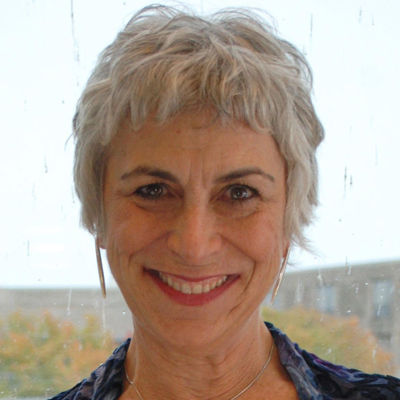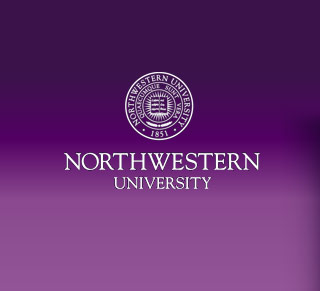How infants’ surprisingly early capacities are shaped by experience
There is no greater wonder than watching a baby discover the world — from first steps to first words, infants learn at an astonishing rate. For more than 20 years, Dr. Sandra Waxman has directed Northwestern’s Project on Child Development, a lab dedicated to understanding how infants acquire language and cognitive capacities. Adopting a unique approach, Dr. Waxman and her team examine how language and cognition unfold from the first months of life and across the world’s communities. Her work sheds light on the origin and unfolding of two “quintessentially human” capacities — language and conceptual organization. “We want to know what ‘kernels’ of knowledge babies are born with, and how these kernels are shaped by their early experience,” she says.
By focusing on infants from birth to three years, an extraordinarily dynamic and formative period, Dr. Waxman hopes to uncover how we begin our life-long journey of learning, thinking, and communicating with others. Dr. Waxman emphasizes that language is at the center of this journey. “Language is our most powerful cultural and cognitive tool,” she says. “It permits us to share our thoughts and beliefs with others in a fashion unparalleled in the animal kingdom. Language is a channel for future learning.”
In another line of research, Dr. Waxman asks how young children across the world learn about the natural world, asking “What does it mean to be alive?” “What is the relation between humans and the rest of the biological world?”
She hopes that state-of-the-art research in developmental science will enable us to meet the very real challenge of designing more effective educational and policy interventions, and to launch them earlier in children’s lives. “We don’t have to wait until children are in school to find out that there are disparities and address them,” she points out.
Current research includes:
-
Linking Language and Thought in Infants: Dr. Waxman and her research team have shown that even before babies say their first words, they have already begun to link language to the objects and events that surround them. Adopting a comprehensive approach, Dr. Waxman asks how infants identify which signals in their environment are communicative. Adopting a cross-linguistic perspective, her current research involves infants and toddlers acquiring a range of different languages, including English, Mandarin, Korean, Spanish, French, and Italian, to better understand how, and how early, the language infants hear shapes their thinking.
-
Promoting Cognitive Capacities: When infants listen to human language, they learn more than “just” language. In fact, listening to human language also promotes infants’ fundamental cognitive capacities. This has powerful implications. After all, if listening to language boosts infant cognition, then infants who hear little language may face challenges in acquiring language and cognitive capacities. In current work, Dr. Waxman and her research team aim to identify the range of cognitive capacities that are boosted by listening to language.
-
Learning about the Natural World — Across Cultures and Across Languages: Dr. Waxman’s fascination with how children learn about the natural world has led her to investigate how children’s experiences with the natural world shape their thinking. Most recently, Dr. Waxman has joined forces with colleagues in Argentina to focus on an indigenous population living in the Chaco rain forest (the Wichí people). Unlike so many Native communities in the United States and elsewhere, the Wichí’s heritage language is intact. In addition, Wichi children and adults have extensive daily interaction with the natural world. By working collaboratively with this community, Dr. Waxman hopes to learn how different cultures and linguistic backgrounds shape young children’s understanding of the natural world. This project has direct implications for early science learning in the United States: To teach science effectively, we need to understand the systems of knowledge that young children bring with them to their increasingly diverse classrooms.
-
Infants and Word Learning: Can infants use the few words they know to learn new ones? Dr. Waxman and her research team have discovered that infants can use the few words they do know to learn new ones. In current work, they are tracing infants’ speed and efficiency in processing the words they hear and linking them to the objects and events they see. They are also asking what infants can learn from overheard speech — language they hear in conversations around them. Together, this work will shed light on how infants learn language so quickly and “crack the code” of human language.

Bio
As a high school student, Dr. Sandy Waxman became fascinated with how we, humans, learn, and this led her to ask even deeper questions, such as “How do we learn language? What does it mean to be alive? What does it mean to be human?” Her fascination with human development, learning, and language carried her into a career first as an occupational therapist, working with young children diagnosed with brain dysfunction, and from there into academia. After obtaining her master’s degree in psychology from The Johns Hopkins University, she went on to complete her Ph.D. at the University of Pennsylvania, where she was mentored by two women researchers: Dr. Rochel Gelman, a psychologist who pioneered the modern study of cognitive development, and Dr. Lila Gleitman, a linguist who pioneered the modern approach to language acquisition. Ph.D. in hand, Dr. Waxman joined the psychology department at Harvard University. Several years later, with a promising research program under her belt and a few wonderful kids of her own in her arms, Dr. Waxman was recruited to Northwestern University, where she has taught undergraduate students, graduate students, and international visiting fellows since her arrival in 1992. She also created the Project on Child Development, a developmental laboratory on Northwestern’s campus that conducts state-of-the-art research while at the same time mentoring and engaging undergraduate students, graduate students, and postdoctoral fellows in the research process. Throughout her career, Dr. Waxman says she has maintained “real curiosity and respect for the awesome capabilities of infants and young children as they link together two signatures of being human — acquiring language and developing powerful and flexible systems of cognition.”


